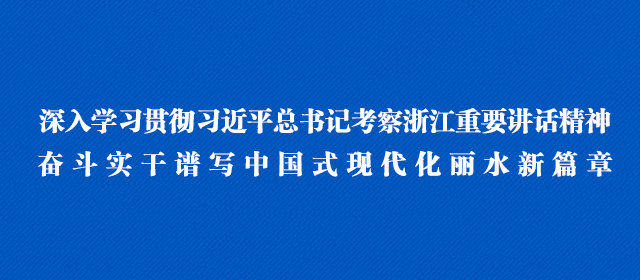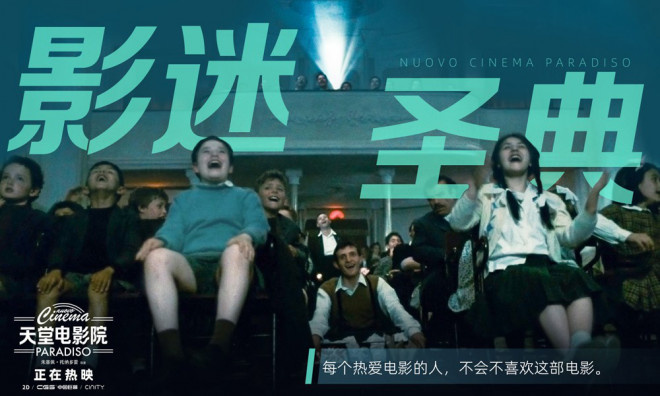On some problems of labor dispatch and employment in foreign enterprises
[Keywords:]
The concept, legal provisions, characteristics, development status, advantages and legal problems of foreign companies
[Abstract]
Labor dispatch is favored by foreign companies because of its advantages over traditional employment methods. However, due to legal defects and irregular employment behavior of some foreign companies, there are some legal problems in the process of using labor dispatch workers in foreign companies, which makes the labor dispatch methods of foreign companies questioned. This paper tries to analyze the legal issues related to labor dispatch in foreign enterprises, and then puts forward relevant suggestions on the legal issues arising from labor dispatch in foreign enterprises, which is a dedication to Mei Qin and a reference for legal theorists, judicial practitioners and legislative departments.
I. Overview of Labor Dispatch
(A) the concept of labor dispatch and related laws and regulations in China
Labor dispatch means that labor dispatch units establish labor relations with laborers, and then dispatch laborers to actual employing units to engage in labor under the command or supervision of actual employing units, which is a special form of wage labor. Labor dispatch originated in the United States, and then appeared in Japan, Western Europe and other regions and countries. However, the terms of labor dispatch are different in different countries’ legislation: Japan, South Korea and Taiwan Province use the term "labor dispatch", while Germany calls it "employee transfer" or "employee transfer", while other European countries, the United States and international labor organizations call it "temporary labor" or "leased labor", and the resulting employment relationship is called "temporary employment relationship".
Labor dispatch means that the employer does not directly sign labor relations with the workers, but signs a dispatch agreement with the workers, and then sends qualified workers to work in the employer.
There are three main bodies in labor dispatch, namely, labor dispatch unit, employment unit and labor dispatch worker. Among them, the labor dispatch unit and the employing unit have a labor dispatch contract relationship; The labor contract relationship between the labor dispatch unit and the labor dispatch workers; There is no direct labor relationship between the labor dispatch workers and the employing units, but based on their labor relationship with the labor dispatch units and the labor dispatch contract between the latter and the employing units, they provide labor services for the employing units and are managed by the employing units.
In China’s current legal system, the legal provisions related to labor dispatch and employment are as follows:
1. Articles 57 to 67 of People’s Republic of China (PRC) Labor Contract Law;
2. Articles 28 to 32 of the Regulations for the Implementation of People’s Republic of China (PRC) Labor Law;
Article 34 of the Tort Liability Law of People’s Republic of China (PRC).
(B) the characteristics of labor dispatch
Generally speaking, labor dispatch has the following characteristics: three parties, two contracts, and the separation of "employment" and "use" of labor.
1. Labor dispatch has three parties.
This employment mode of labor dispatch is obviously different from the traditional employment mode. The traditional employment mode only involves two subjects, namely the employer and the laborer, while labor dispatch is different. It has three subjects, including the labor dispatch unit, the actual employer and the dispatched laborer. Labor dispatch units conclude labor contracts with dispatched workers, and labor relations are formed between them; The employing unit has the right to supervise and command the dispatched workers and the right to claim labor payment; By concluding a labor dispatch agreement, the labor dispatch unit and the employing unit define the rights and obligations of the dispatched workers in terms of employment and use. It can be seen that the "tripartite subject" is the most superficial feature of labor dispatch.
2. There are two contracts.
In labor dispatch, there should be at least two contracts: one is the labor contract concluded between the dispatching unit and the dispatched workers. The Labor Contract Law stipulates that the labor dispatch unit shall conclude a fixed-term labor contract with the dispatched workers for more than two years. The identities of "employer" and "employee" are determined through the labor contract, and the dispatching unit undertakes the obligations of paying wages to the dispatched workers, paying social insurance for them, and ensuring the minimum wage income during the non-working period. There is a labor relationship between them. The second is the labor dispatch agreement between the dispatching unit and the employing unit. The Labor Contract Law stipulates that the labor dispatch unit shall conclude a labor dispatch agreement with the employing unit, and the agreement shall stipulate the number of dispatched posts and personnel, the dispatch period, the amount and payment method of labor remuneration and social insurance premiums, and the responsibility for violating the agreement.
3. Separation of "employment" and "use" of labor.
The biggest difference between labor dispatch and standard labor law is the separation of "employment" and "use" of labor. In labor dispatch, the dispatching unit is the employer of the dispatched worker and the counterpart of the labor contract, but it is not the object that the dispatched worker actually pays the labor. On the contrary, although the employer has no labor relationship with the dispatched workers, it is the actual labor payment claimant of the dispatched workers according to the labor dispatch agreement and can supervise and manage the labor process of the dispatched workers. This has formed a "employment separation" situation of "hiring without using, using without hiring". The separation of employment is the essential feature of labor dispatch.
(C) the development of labor dispatch
1. Development of labor dispatch in other countries and regions
The labor dispatch industry originated in the United States in the 1920s, when a company named Samuel Workman founded the business model of human leasing (Rentedhelp). At that time, the company hired a group of married women to handle the inventory work at night, then trained them to use calculators, and then leased them to enterprises so that enterprises could meet temporary or short-term manpower needs. Since 1940s, the labor dispatch industry has been popularized in the United States and European countries. Since the 1960s, the labor dispatch industry has also been born in Japan, and the Labor Dispatch Law was formally promulgated in 1985. Labor dispatch also appeared in Taiwan Province in 1980s, and developed in the late 1990s.
2. The development of labor dispatch in mainland China.
In the early days of reform and opening up, due to the policy restriction that foreign legal person’s institutions in China are not allowed to recruit workers directly in China, the labor dispatch industry in China was born to solve this problem. Established in November, 1979, Beijing Foreign Enterprise Human Resources Co., Ltd. initiated the labor dispatch industry in China, providing Chinese employees dispatch services for foreign embassies and consulates in China and permanent representative offices of foreign enterprises in Beijing. With the continuous development of China’s market economy, the employment mode of labor dispatch is rapidly popularized in China. As of May 2013, the total number of laborers in China has reached more than 60 million, accounting for 20% of the total number of domestic employees. From the perspective of labor dispatching employers, taking Shanghai as an example, at present, there are more than 40,000 labor dispatching employers in Shanghai, among which foreign companies use labor dispatching the most.
(D) the advantages of labor dispatch
The reason why labor dispatch is favored by employers including foreign companies in China is mainly because it has the following advantages compared with the traditional employment method of directly establishing labor relations with workers:
1. Flexible employment methods
Under the mode of labor dispatch, there is no direct labor relationship between the employer and the labor dispatch, and the two parties are not bound by the legal relationship on concluding, changing and dissolving the labor contract. The employer can ask the labor dispatch unit to increase or decrease the number of personnel at any time according to the needs of production and operation, which is conducive to enhancing the flexibility of employing people.
2. Reduce labor costs. Including reducing recruitment costs and personnel management costs. First of all, in the recruitment process, the labor dispatch unit will hand over the recruitment to the professional labor dispatch unit, thus saving the cost and time required for personal recruitment. Secondly, in terms of personnel management, labor dispatch employers can outsource labor contract management, employee file management, social insurance, employee transfer and other matters to professional labor dispatch units, thus reducing the cost of human resource management.
3. Reduce the risk of employment. As the main body of the labor contract is the labor dispatch unit and the labor dispatch worker, the labor dispatch unit does not directly sign the labor contract with the labor dispatch worker, and the two sides are not subject to the adjustment of direct labor relations by law. When a dispute arises, the labor dispatch unit does not directly face the worker, which can reduce the trouble of directly solving the labor dispute to a certain extent.
Second, the legal problems in the labor dispatch of foreign enterprises
As mentioned above, China’s dispatch mode of employment appeared at first because it was convenient for foreign companies to employ. Although the policy problem that caused foreign companies to employ by means of labor dispatch has disappeared, the policy problem of employing by means of labor dispatch has disappeared. However, due to the advantages of labor dispatch mode itself, many foreign companies still choose labor dispatch mode and become the enterprises that adopt this mode of employment the most. However, some problems have also been exposed in the process of sending labor services to foreign companies.
(A) abuse of labor dispatch
Article 66 of China’s Labor Contract Law stipulates: "Labor contract employment is the basic form of employment for enterprises in China. Labor dispatch is a supplementary form and can only be implemented in temporary, auxiliary or alternative jobs. " However, in practice, foreign companies, driven by the benefits brought by the advantages of labor dispatch itself, have also turned to labor dispatch for posts that should not have been used in order to avoid the responsibility of employers.
Among them, the typical abusive labor dispatch mode is "reverse dispatch", which also becomes "false dispatch", that is, the laborer has a direct labor relationship with the employer. In order to avoid the responsibility of employing people, the employer forces the laborer to change his identity, and first takes various means to terminate the labor contract with the laborer, and then let these employees re-conclude the labor contract with the labor dispatch unit designated by the unit, and the dispatching unit will send these employees back to work. In fact, the relationship established by reverse dispatch is a false labor dispatch employment relationship.
For example, the famous KFC labor dispatch case. In this case, Beijing KFC transferred Xu Yange’s type of work to labor dispatch, and the salary remained unchanged, and the two sides signed relevant contracts. In 2004, Beijing KFC transformed its cooperative company into Beijing Times Bridge Company. In May, 2004, KFC posted a notice on the wall of the warehouse office, which stated that the warehouse staff would sign a labor contract with Times Bridge Company, and if they did not sign a labor contract with Times Bridge Company, KFC would dismiss them. On May 20th, 2004, at the request of KFC, Xu Yange signed a labor contract with Times Bridge Company. Although Xu Yange signed a labor contract with Times Bridge Company, Xu Yange still works in KFC. On October 12, 2005, KFC returned Xu Yange to Times Bridge Company on the grounds of violating labor discipline and operating rules. On October 12, 2005, Times Bridge Company and Xu Yange dissolved the labor relationship. Xu Yange believes that he has worked in KFC for 11 consecutive years and should be an employee of KFC. Even if the labor contract is terminated, KFC should pay economic compensation according to 11 years of service. KFC believes that Xu Yange is an employee dispatched by Times Bridge Company, and has no labor relationship with KFC, and does not agree to pay any compensation.
In this case, KFC officially used reverse dispatch to evade the responsibility of employing people under labor relations, including the responsibility of paying economic compensation. Because the "Labor Contract Law" stipulates three abstract characteristics of "temporary", "auxiliary" and "alternative" for the post of labor dispatch, it is obviously not clear enough; And the term "general" is used, which makes Article 66 of this Law not mandatory. This legal loophole makes it possible to abuse labor dispatch. Although KFC finally decided to bid farewell to labor dispatch in this case, adjusted its policy and changed its employment mode to direct employment, in reality, other foreign companies still abused labor dispatch in a similar way.
(two) infringement of the legitimate rights and interests of labor dispatch workers
In the process of labor dispatch in foreign enterprises, there are not only problems of abusing labor dispatch, using labor dispatch when it should not be implemented, but also using labor dispatch methods. At the same time, there are also problems such as different pay for equal work, social security, protection of women workers’ rights and interests, and even abuse of labor dispatch.
In October 2011, "GUCCI abused workers" broke out, and five former employees who had worked in Shenzhen Gucci flagship store posted an "open letter from collectively resigned Gucci employees to Gucci’s top management" on the Internet, which revealed to the public that Gucci had more than 100 regulations on employees’ behavior when working in stores. Among them, many regulations directly challenge the physiological needs of employees. For example, "you must apply to your superiors for drinking water, and you must get permission to go to the bathroom. The time to go to the bathroom is strictly limited to five minutes." Even some resigned employees report that they have to stand for more than ten hours every day when they go to work during pregnancy. What is even more puzzling is that the company director does not even allow pregnant colleagues to eat and supplement nutrition during breaks. It is said that there are also pregnant colleagues who have miscarried because of this. This labor abuse storm involves the labor employment system of Gucci Shenzhen brand store, and it is found that all Shenzhen employees sign contracts by means of labor dispatch. Although the five store employees in the incident were managed by Gucci, these Gucci employees signed the work contract with a company named Nanyou Waifu Human Resources Co., Ltd. in Nanshan District, Shenzhen. After signing the contract, the employees were first "dispatched" to Gucci’s Shanghai headquarters and then "dispatched" to Shenzhen to work, which made this labor dispute case face the problem of "supervision in different places". And labor dispatch has also become Gucci’s shield to avoid responsibility.
Third, suggestions to solve the problem
In view of the legal problems arising from the above-mentioned labor dispatch in foreign enterprises, the reasons actually include two factors: one is the possibility that the loopholes in the law itself lead to the above-mentioned problems; Second, some foreign companies have insufficient awareness of law-abiding and have not established a correct concept of employment. Therefore, for the solution of the above problems, we can find a way out from the legal aspects and foreign companies.
(A) Suggestions to improve the law
As mentioned above, Article 66 of the Labor Safety Law only stipulates the abstract three characteristics of "temporary", "auxiliary" and "alternative" in non-mandatory language, lacking specific identification standards and mandatory provisions. The draft "Regulations on the Implementation of the Labor Contract Law" tried to specify the posts where labor dispatch can be implemented, but it was deleted in the officially promulgated version.
As an atypical mode of employment, labor dispatch is subject to certain restrictions in other countries and regions, including specific industries and their deadlines. In order to make up for legal loopholes and prevent the possibility of abusing labor dispatch, it is necessary to improve the restrictions on employment positions of labor dispatch in legislation. Some scholars advocate empirical expression. For example, in Japan and Taiwan Province, China, more than 100 industries and jobs are listed, and only those jobs within the scope can use dispatched workers. Otherwise, it is illegal to use dispatched workers.
(B) Suggestions on labor dispatch in foreign enterprises
From the perspective of foreign companies, although labor dispatch has the above advantages, there are certain disadvantages if these advantages are abused and the labor dispatch method is also applied to general posts.
First of all, the employment mode of labor dispatch will reduce employees’ sense of belonging to the enterprise, thus reducing their loyalty to the enterprise, which may increase the difficulty of employee team management, and even face the risk of trade secrets being leaked and business risks, which will not only fail to save costs, but may cause greater losses to the enterprise.
Secondly, the use of labor dispatch is not conducive to improving the overall technical quality of the workforce. In vocational training, it is difficult to expect labor dispatch units to provide vocational training for a large number of workers with different skills, educational levels and job requirements scattered in various workplaces. From the perspective of foreign companies, they are unwilling to increase investment in employees who do not belong to them to improve their labor skills, so labor dispatch is likely to become a short-sighted behavior of foreign companies, which is not conducive to their rapid development. Even if foreign companies are willing to invest in training costs for labor dispatch workers, because there is no direct labor relationship between the two parties, foreign companies do not enjoy some of the rights that employers should have. For example, in the case of training liquidated damages between Siemens and labor dispatch worker Peng Jia in 2007, Siemens was ruled by the Arbitration Commission to lose the case, because it only served as an employer rather than an employer in the labor dispatch relationship, and it was not qualified to set up liquidated damages. Siemens originally wanted to escape the obligations of the employer through the labor dispatch relationship, trying to take advantage of the lack of strict provisions in the original law, but the result was bitter.
Finally, because Article 92 of the Labor Contract Law stipulates that "if the dispatched workers are damaged, the labor dispatching unit and the employing unit shall bear joint and several liability", it brings joint and several liability risks to foreign enterprises in using labor dispatching workers. For example, if the labor dispatching unit fails to apply for industrial and commercial insurance for the labor dispatching workers in time and is unable to pay high industrial injury insurance fees after an industrial injury, the employing enterprise shall bear joint and several liability and pay the expenses for the labor dispatching unit. What is more serious is that if the labor dispatch unit closes down or is cancelled, the employing enterprise is required to assume all legal obligations to the labor dispatch workers.
In view of the unfavorable factors mentioned above, from the perspective of foreign-invested enterprise operators, we should not blindly pursue the benefits brought by labor dispatch, but it is likely that the attempt to evade the responsibility of employing people by abusing labor dispatch will not pay off. Therefore, for posts that are not suitable for labor dispatch, direct labor relations should still be adopted for employment. For "temporary", "auxiliary" and "alternative" posts that really meet the legal requirements, foreign enterprises should choose legally established and standardized labor dispatch units when adopting Laiwu’s labor dispatch mode, and clearly stipulate the specific rights and obligations of both parties when signing labor dispatch contracts; At the same time, when using labor dispatch workers, we should also pay attention to the humanized management of employees, improve the awareness of obeying the law, and effectively protect the legitimate rights and interests of labor dispatch workers. On the one hand, it is conducive to reducing the legal risks in the process of employment, on the other hand, it is also a manifestation of corporate social responsibility, which is conducive to maintaining the corporate image of foreign companies and promoting their long-term development.
[References]
[1] Zhang Songxia: "Research on Legal Joint Liability for Labor Dispatch", published on Jiangsu Court Network on May 9, 2014.
[2] Jiang Lin: "Analysis on the Employer’s Responsibility in Labor Dispatch", which was published on Jiangsu Court Network on November 14, 2013.
[3] Cai Xiaoyi: "A Preliminary Study on the Legal Issues of Labor Dispatching in Foreign Enterprises", contained in "Research on Hot Issues of China Law", China University of Political Science and Law Press, 1st edition, May 2013, pp. 168-176.
[4] Item: "On the Advantages and Disadvantages of Enterprises Implementing Labor Dispatch", in China Business, No.2, 2010.
[5] Tan Guli: "Luxury brand Gucci Shenzhen labor abuse storm", contained in "Legal Person", No.11, 2011.
[6] Huang Qi: "On the expansion of labor dispatch and related issues", contained in "Trade Union Theory Research", No.2, 2011.
[7] Zheng Shangyuan: "Improper Labor Dispatch and Its Control", in The Jurist, No.2, 2008.
[8] Tian Xianghua: "After Siemens lost the case", Law and Life, No.2, 2008.
[9] Long Jishou: "Risks and Prevention of Labor Dispatching", in Sichuan Labor Security, No.5, 2011.
[10] Research Center for the Proposition of the Compass Judicial Examination: Collection of Required Laws and Regulations for the National Judicial Examination in 2015 (Teaching Edition, Volume 6), China University of Political Science and Law Press, October 2014, pp. 279-281.
(Author: suyu district People’s Court, Suqian City, Jiangsu Province)








